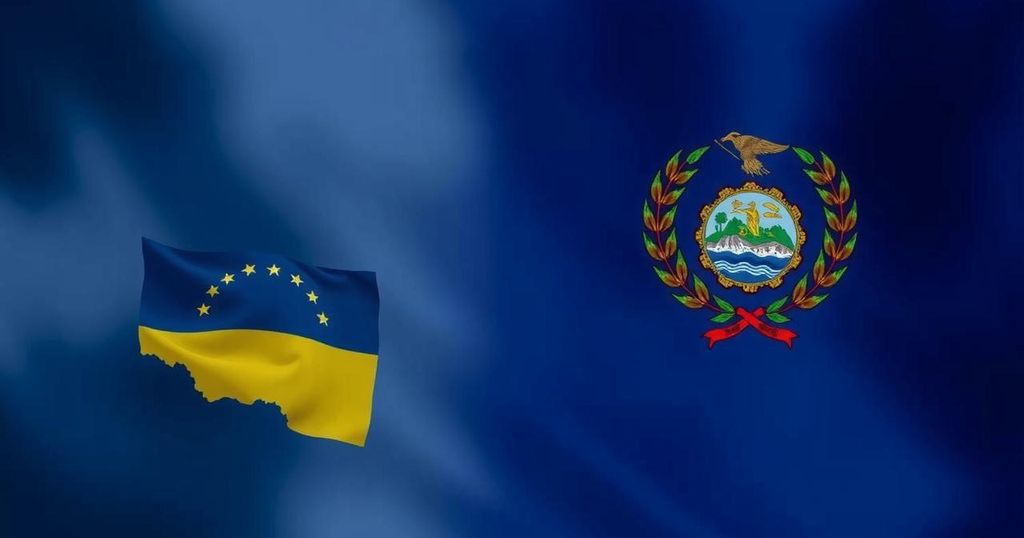Politics
BRAZIL, CNN, COLOMBIA, CUBA, DANIEL ORTEGA, DEMOCRACY, FOREIGN POLICY, FSLN, GUSTAVO PETRO, LU, LUIZ INÁCIO LULA DA SILVA, LULA, MADURO, MILITARY INTERVENTION, NICOLAS MADURO, NORTH AMERICA, ORTEGA, PET, PETRO, POLITICS, SANDINISTA, SANDINISTA NATIONAL LIBERATION FRONT, SOUTH AMERICA, TRADE RELATIONS, US, VENEZUELA
Fatima Khan
0 Comments
Ortega Pledges Support to Maduro: A Potential Threat to Regional Stability
Nicaragua’s President Daniel Ortega has offered to send Sandinista fighters to Venezuela to support President Nicolas Maduro amid unrest following disputed elections. Amid widespread protests, Ortega criticized other leftist leaders for not recognizing Maduro’s victory, while international observers question the integrity of the electoral process. The political situation raises concerns about regional stability and human rights violations.
In an alarming development for the region, Nicaragua’s President Daniel Ortega expressed readiness to deploy “Sandinista fighters” to Venezuela to support President Nicolas Maduro against potential revolts following the contentious July elections. The backdrop of Ortega’s proposition is Maduro’s controversial reelection triumph, which has ignited widespread protests and violent unrest, resulting in civilian casualties and significant political imprisonment by Caracas’s security forces. Ortega’s remarks were made during a recent summit attended by other Latin American leaders, where he criticized their hesitance to endorse Maduro’s electoral success. The authenticity of Maduro’s victory is under scrutiny, with various international observers disputing the legitimacy of the electoral process. Meanwhile, the Venezuelan opposition has produced evidence suggesting their candidate may have actually won the election. In response to the escalating situation in Venezuela, President Ortega offered military support to Maduro, ominously stating that in the event of an “armed counterrevolution,” Sandinista fighters would be at Maduro’s side. This statement reflects Ortega’s commitment to bolstering alliances with fellow authoritarian leaders, despite his own tenure being marred by allegations of electoral manipulation and opposition suppression. The Nicaraguan leader’s comments were particularly directed at fellow leftist leaders such as Brazil’s Lula and Colombia’s Gustavo Petro, who have chosen not to recognize Maduro’s claimed victory, which Ortega deemed “shameful.” The political climate in Venezuela remains tense, characterized by a series of protests against Maduro’s regime, which his administration claims to be the legitimate government after garnering a mere 50% of the votes according to state-controlled electoral authorities. However, the opposition and international observers have raised significant doubts about the veracity of these claims. Key institutions, including the United States and the European Union, have called for transparency in the electoral process, demanding detailed results that substantiate the claims of Maduro’s supporters. As tensions rise, many in the opposition continue to assert that Maduro was not the rightful winner, citing their own evidence indicating that opposition candidate Edmundo Gonzalez Urrutia may have prevailed.
The political relationships in Latin America have become increasingly convoluted as authoritarian regimes in countries such as Nicaragua and Venezuela engage in mutual support amid international scrutiny. President Ortega’s Sandinista National Liberation Front (FSLN) has roots in revolutionary history, and Ortega himself has faced serious allegations regarding his presidency’s legitimacy, paralleling the challenges faced by Maduro. The persistent unrest in Venezuela following the disputed elections has led to significant concerns about human rights violations and the overall stability of the region. Furthermore, geopolitical tensions are evident as countries grapple with the fallout from disputed elections, leading to varied responses from international leaders and human rights organizations. The international community remains watchful over developments within Venezuela, as the implications of Ortega’s statements may lead to further escalation.
In summary, President Daniel Ortega’s pledge to send Sandinista fighters to Venezuela underscores potential military intervention in support of Nicolas Maduro amid protests against a disputed election. This scenario poses significant risks, not only for Venezuela but for the broader Latin American region. The dynamics of solidarity among authoritarian regimes bring tensions to the forefront, while the legitimacy of electoral processes continues to be critically evaluated by both domestic and international observers, stirring calls for transparency and accountability in governance.
Original Source: edition.cnn.com




Post Comment